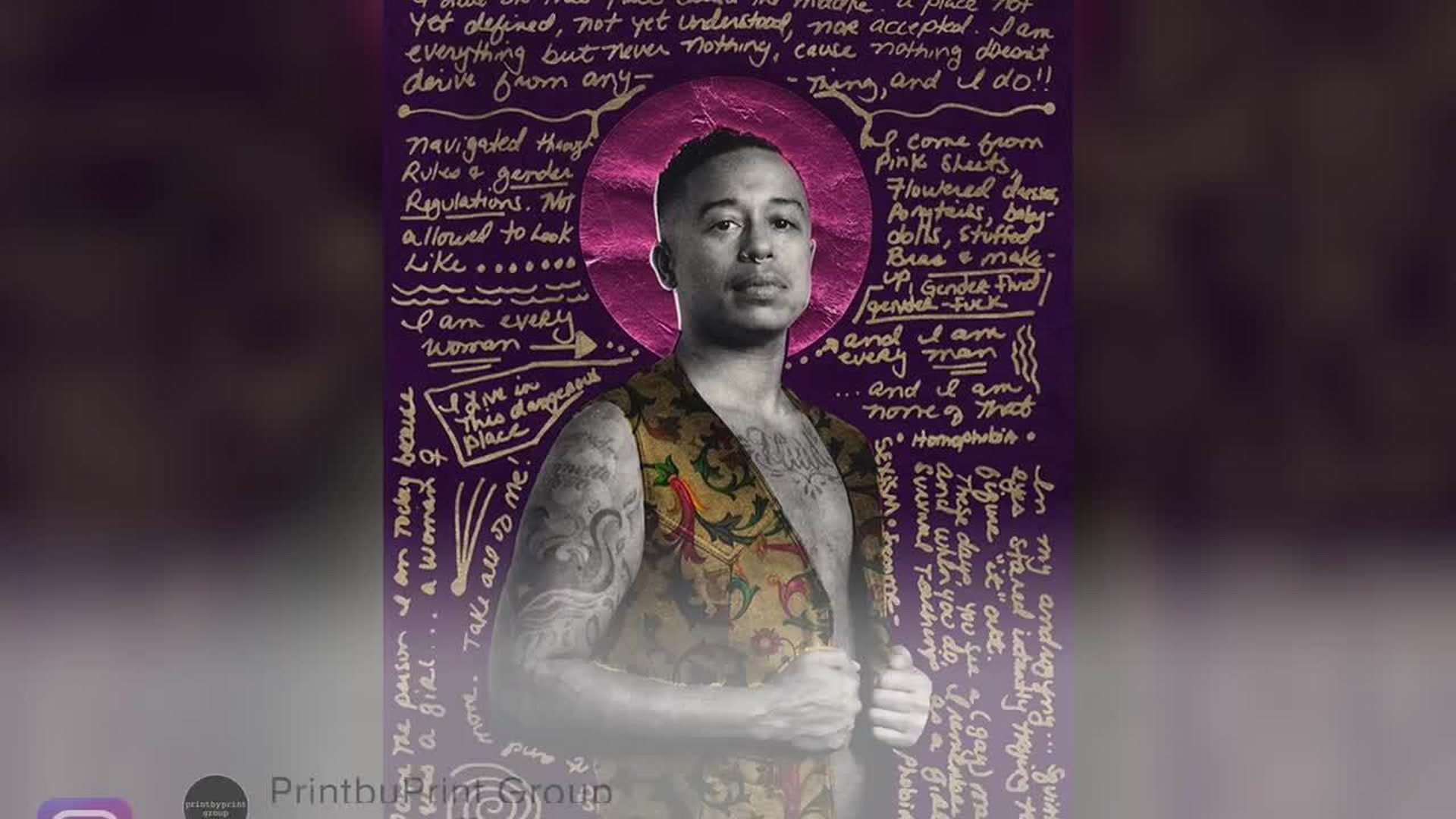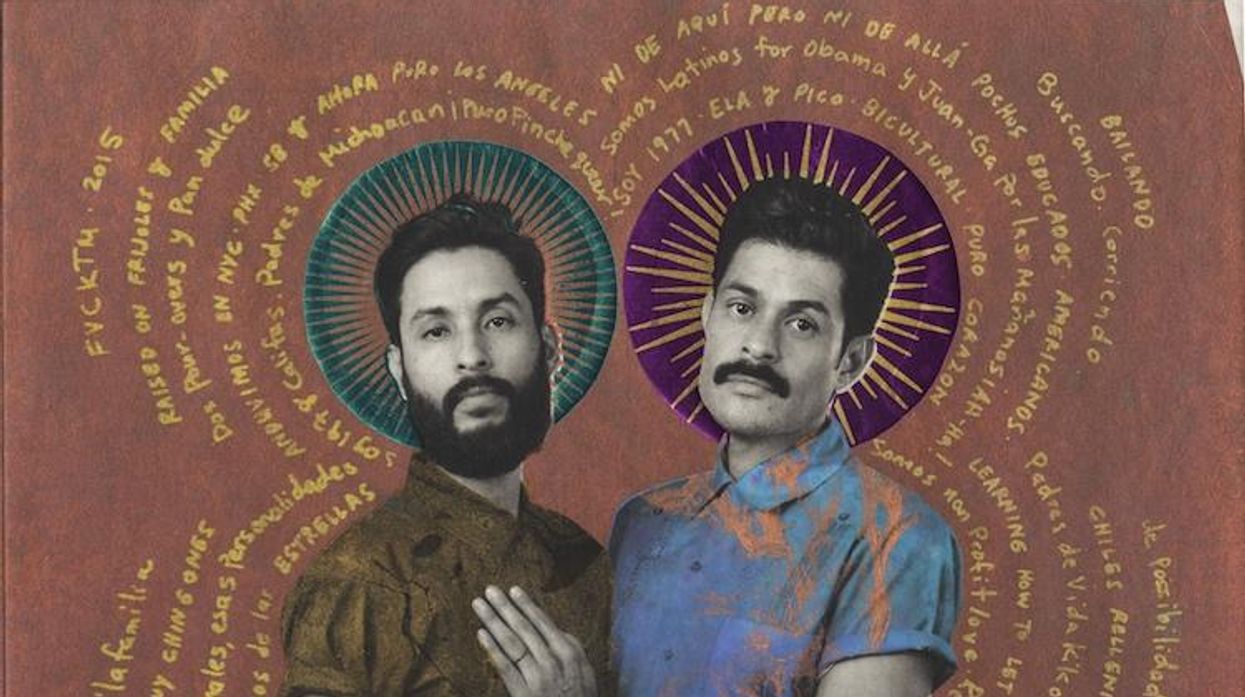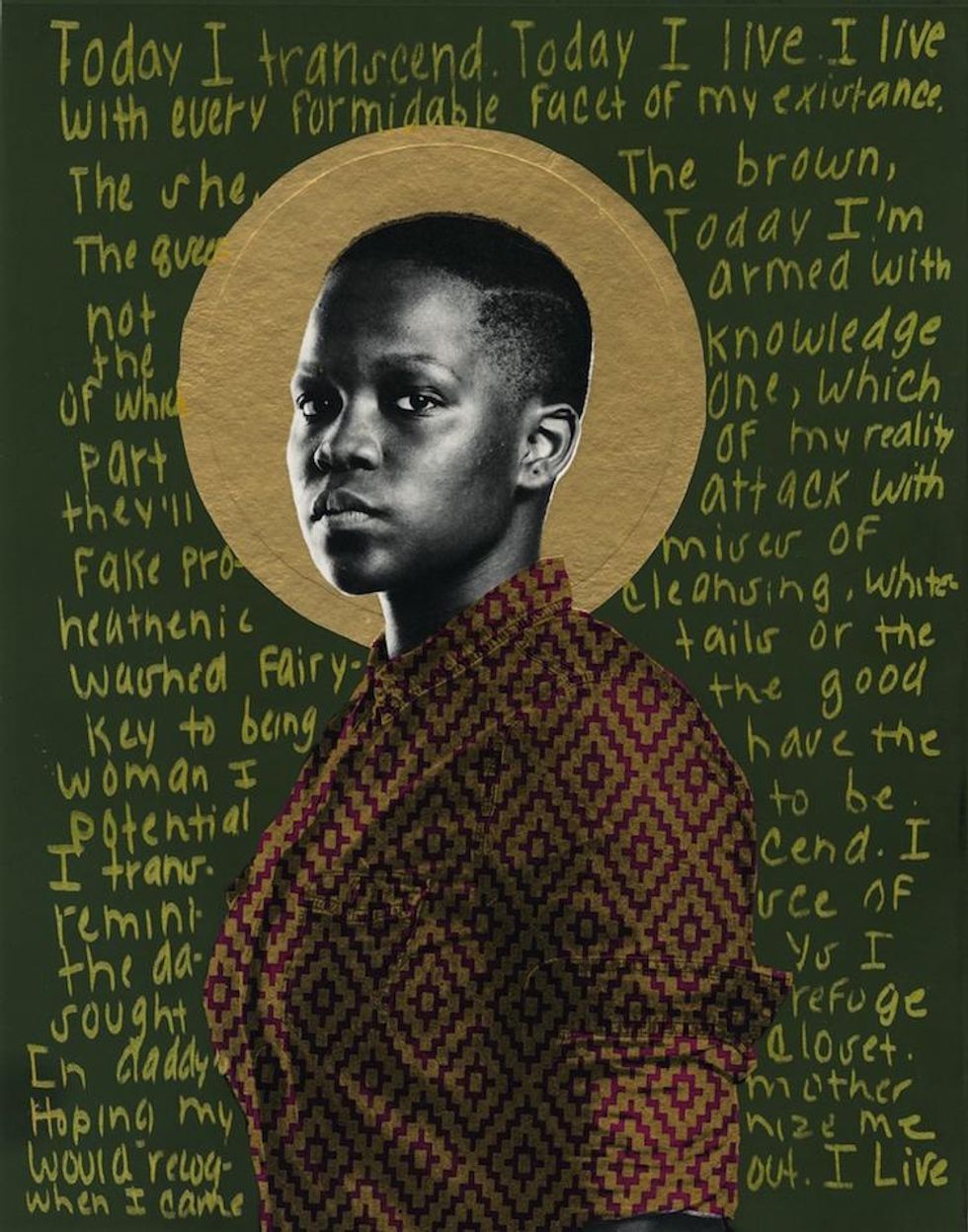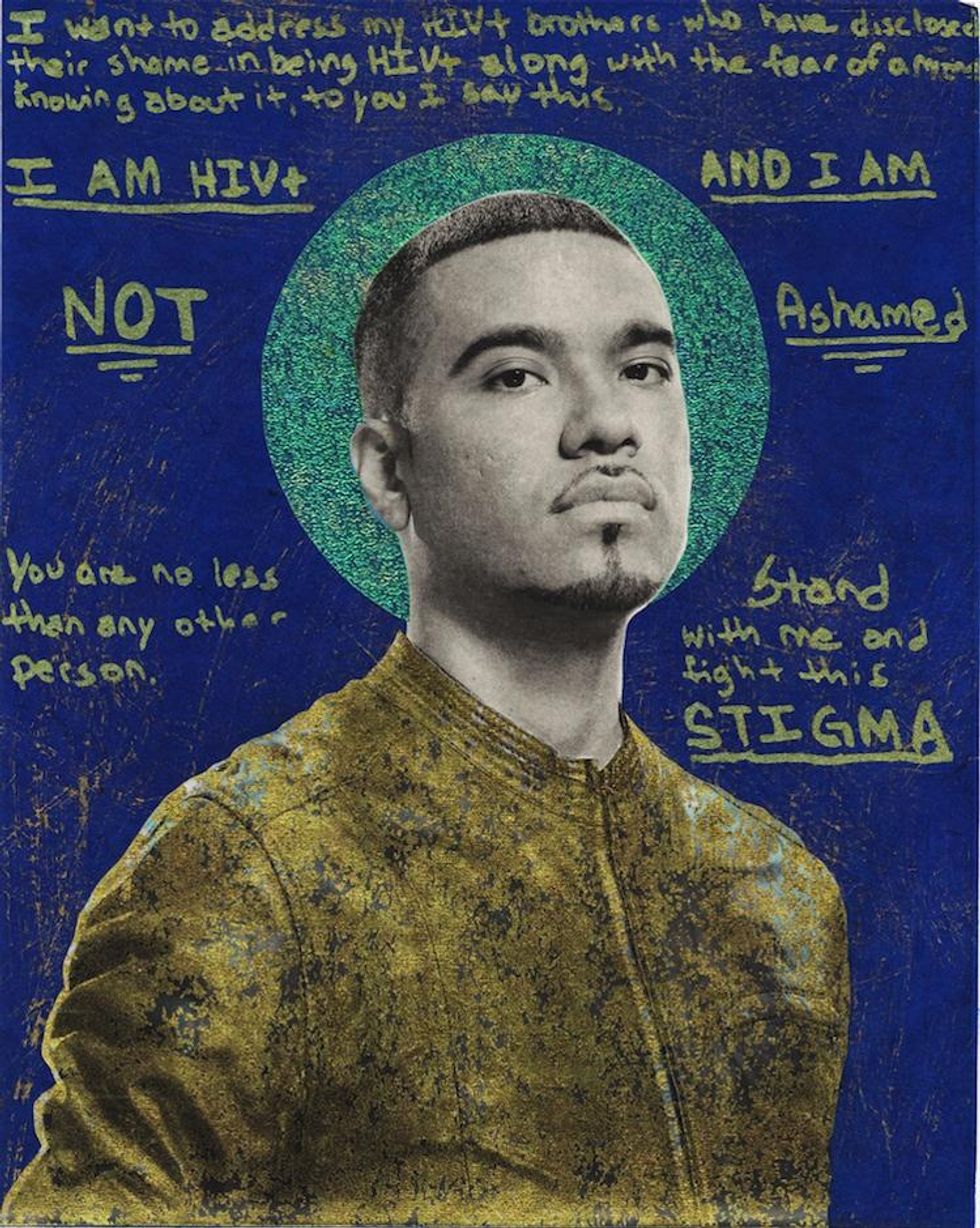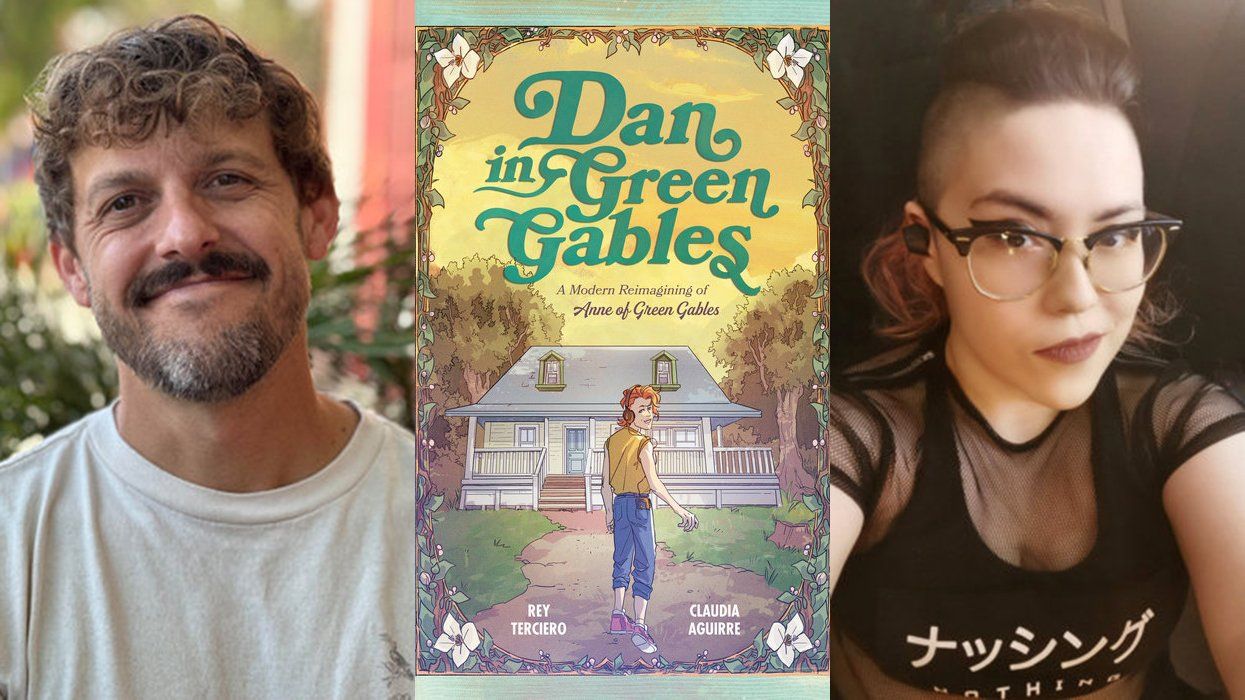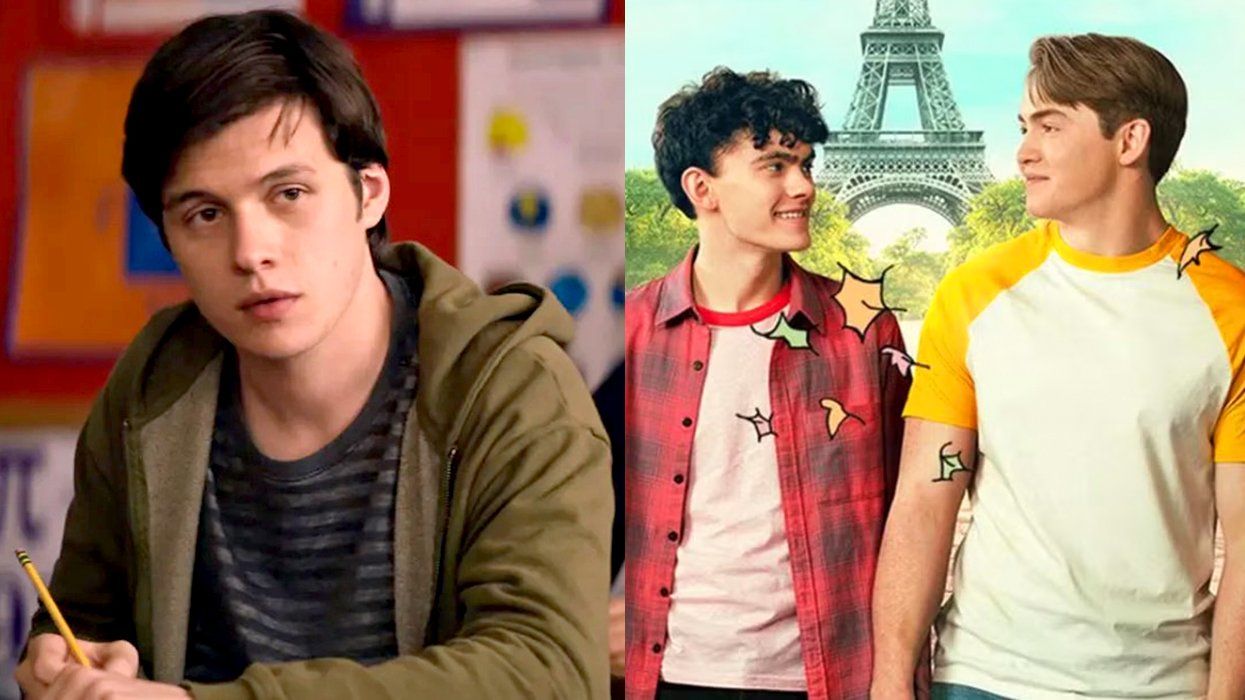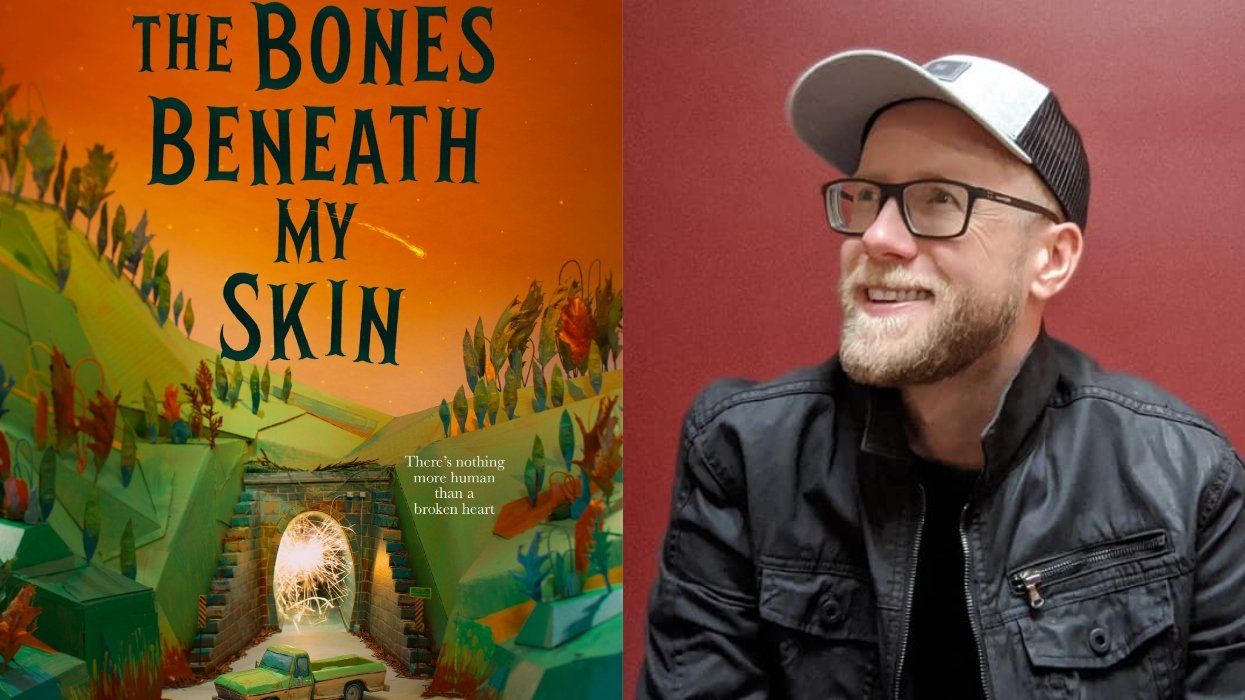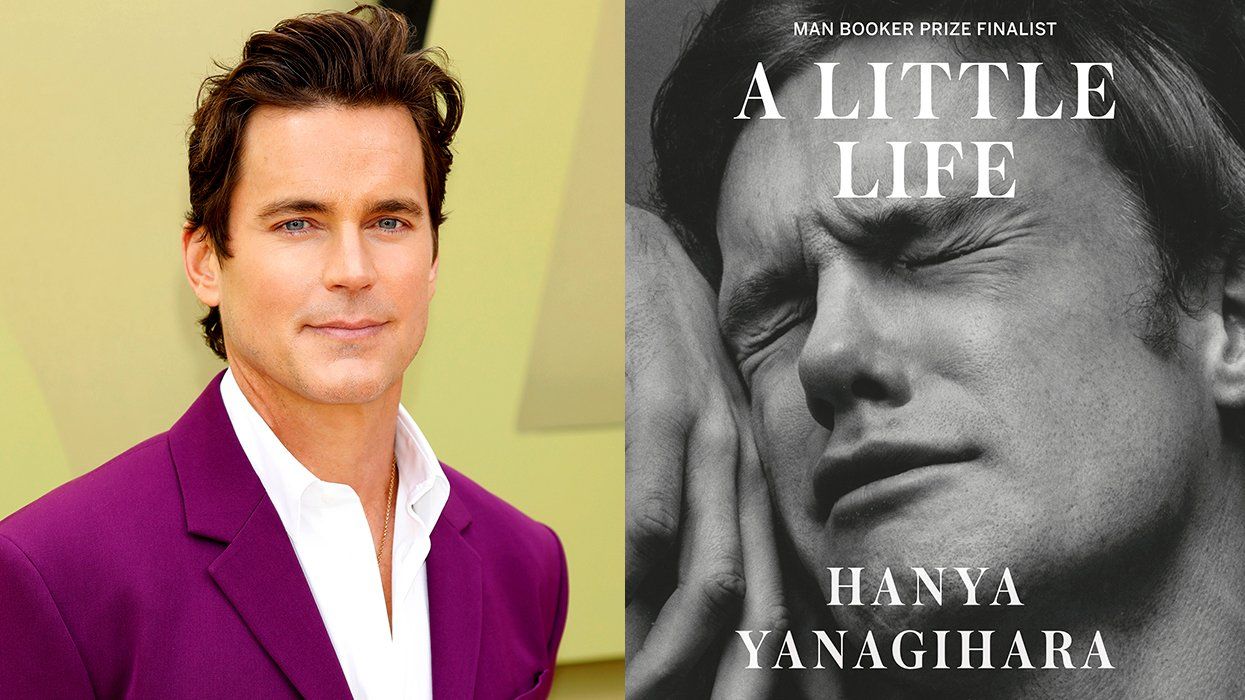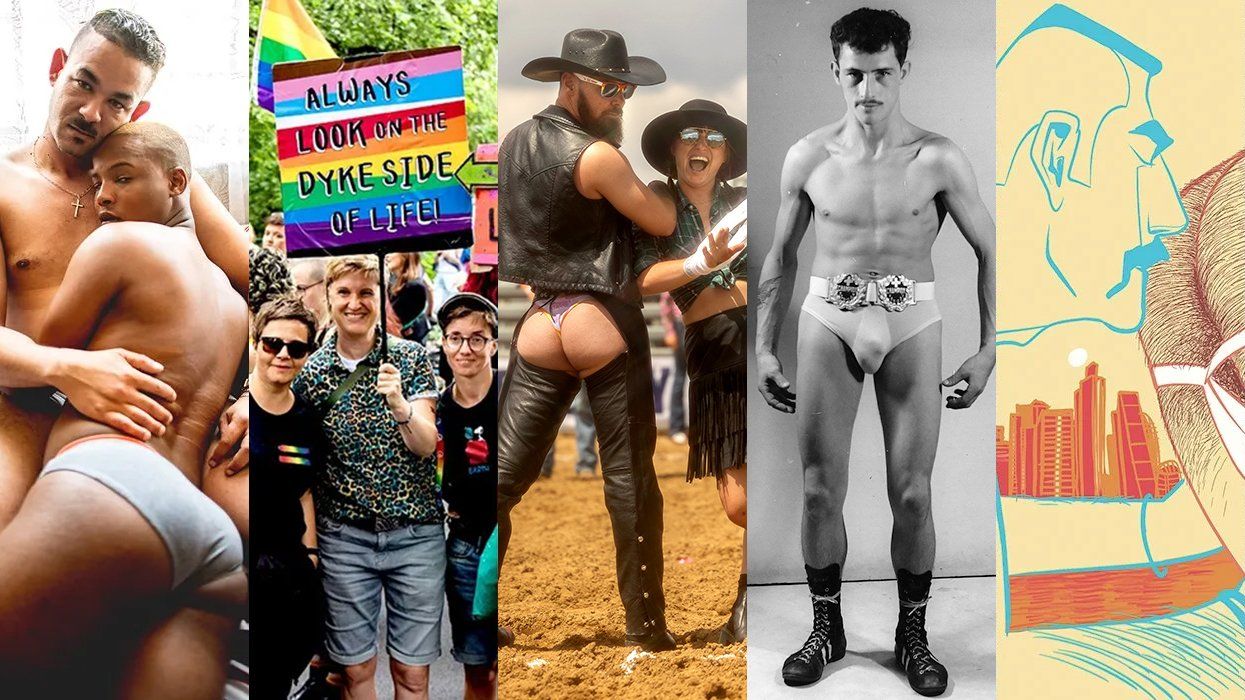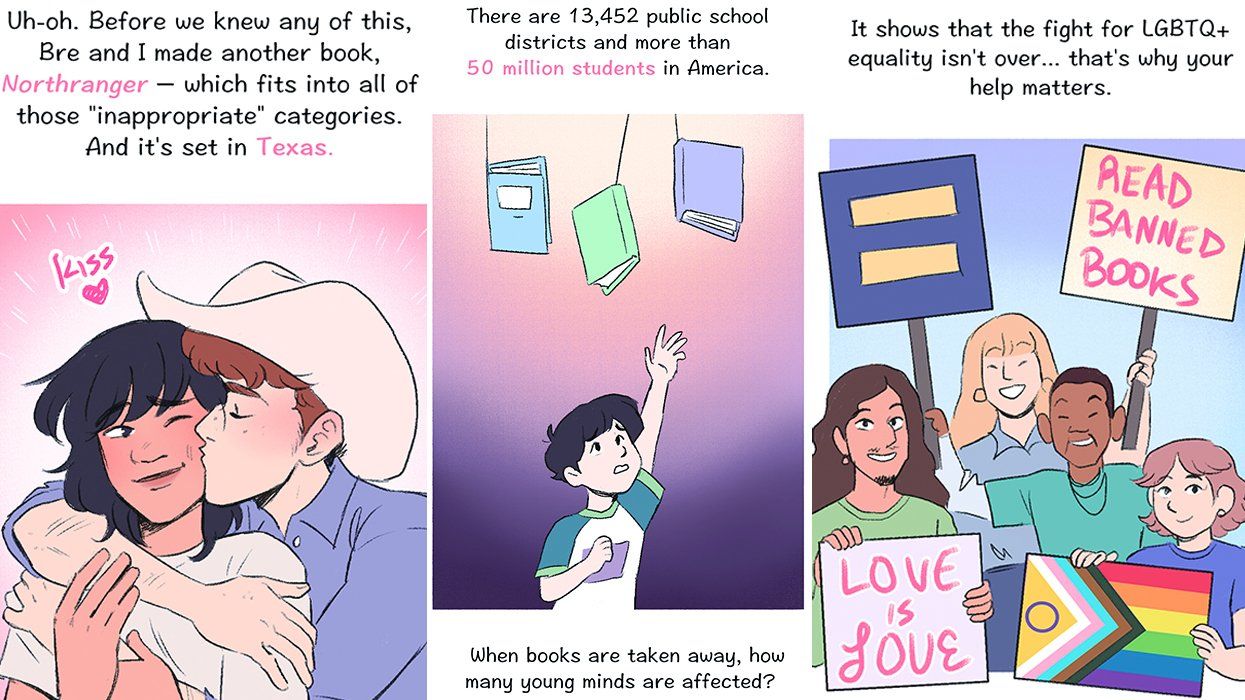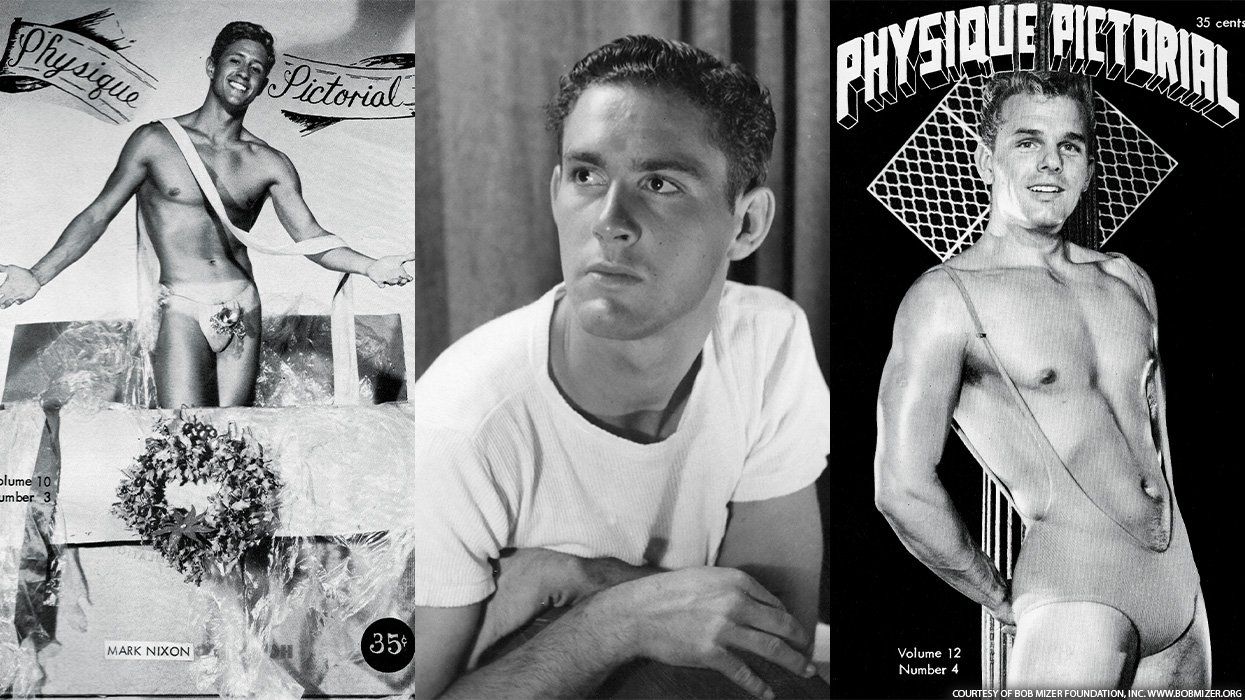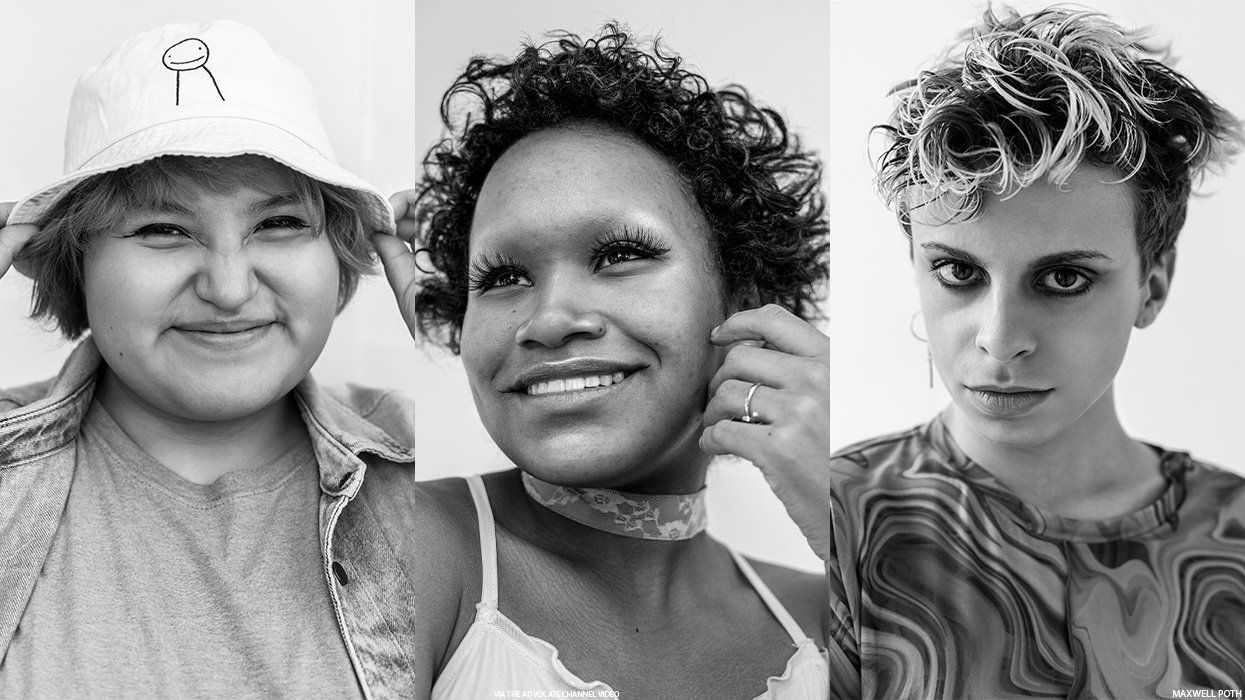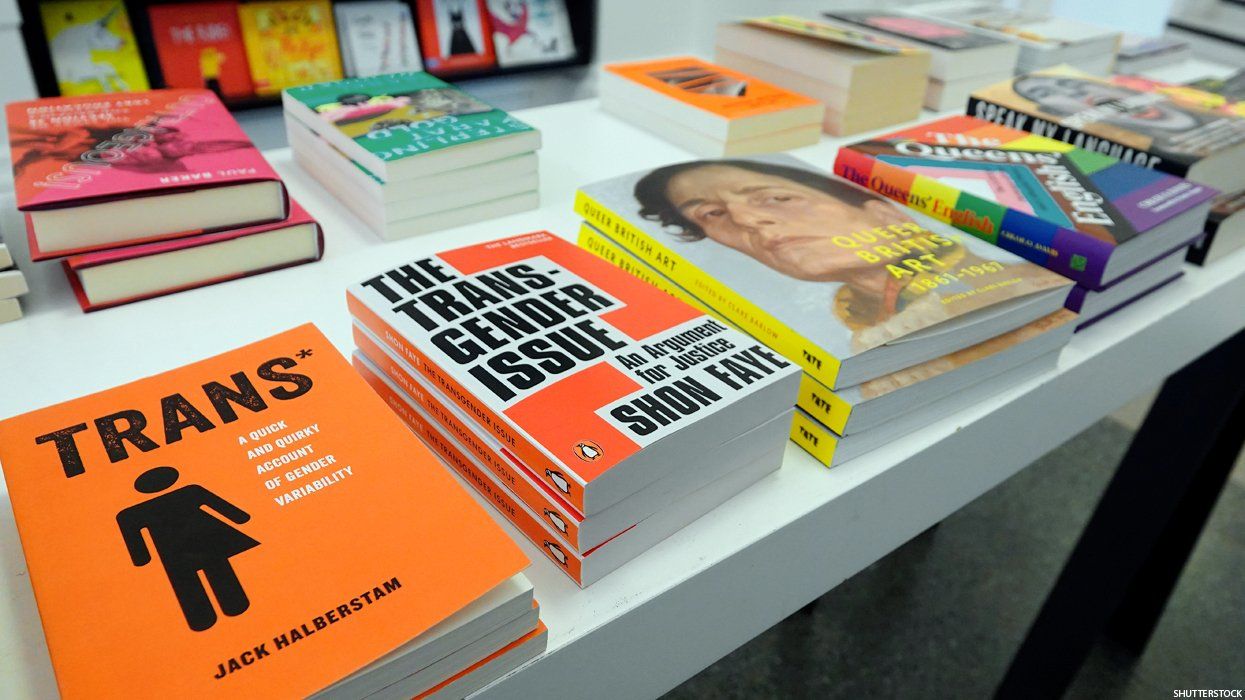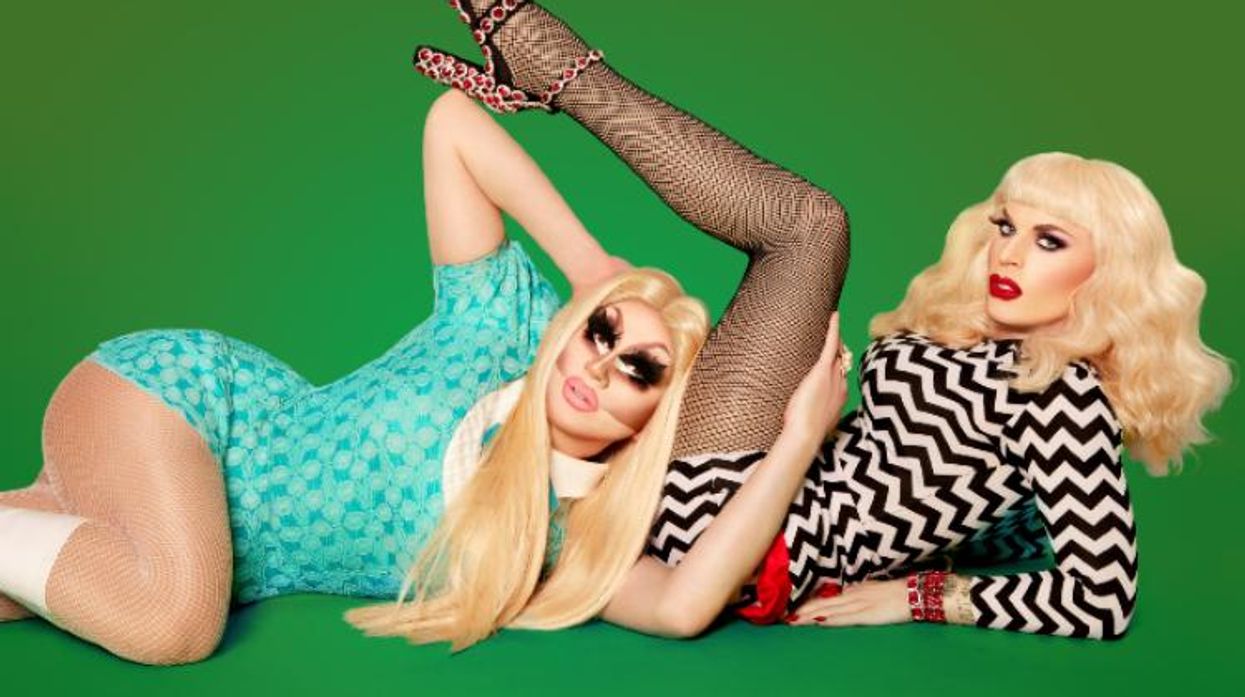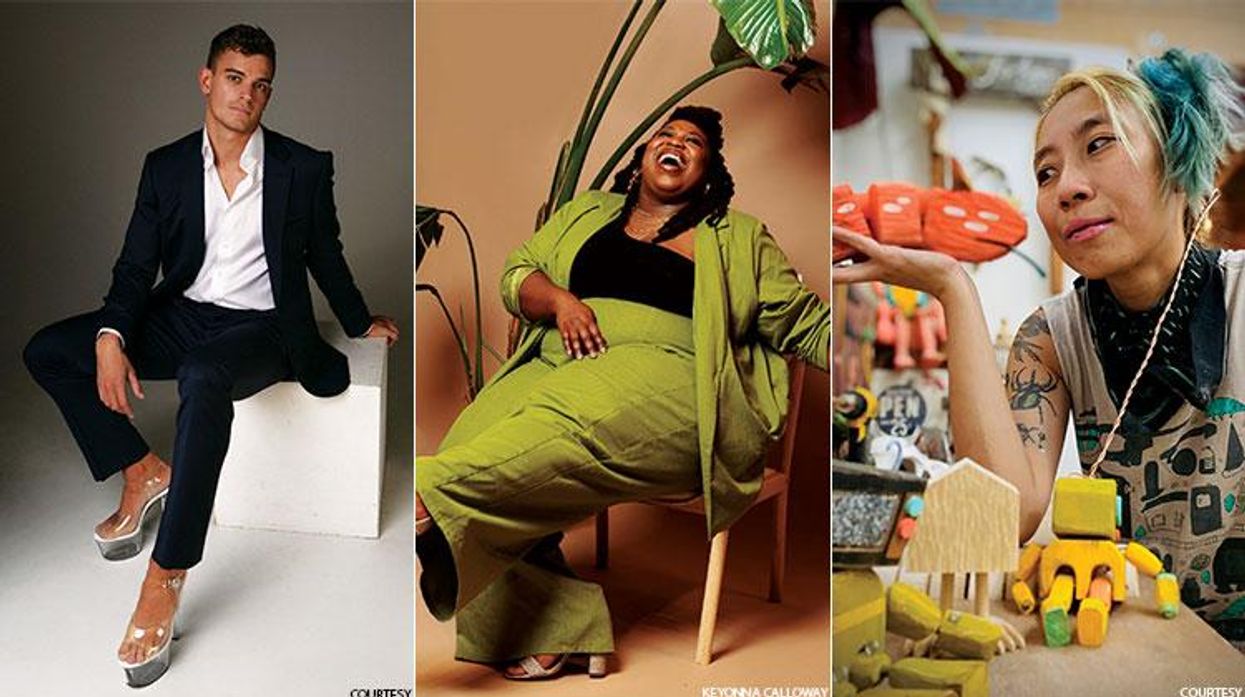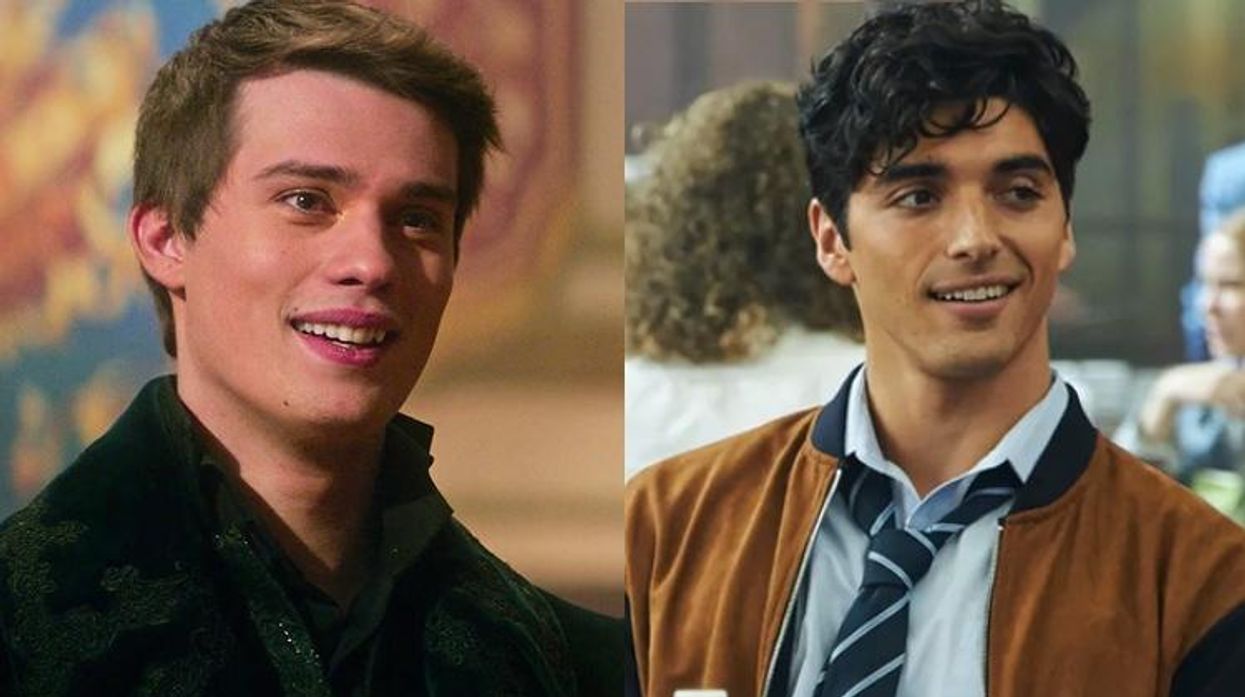Reflecting on his Mexican Catholic upbringing, Gabriel Garcia Roman created a portrait series featuring queer people of color depicted as the saints in traditional fresco paintings. "Religious art was my first introduction to art," the queer photographer says, admiring how these biblical figures exuded strength. "No matter how much pain and suffering they went through, they still held their head high and were there for their people."
Related | Gallery: Gabriel Garcia Roman's Queer Icons
Garcia Roman recognized the same prevailing power throughout the LGBTQ community, and began docfumenting his queer friends in an expansive body work titled, Queer Icons. The multimedia images see subjects posing with halos around their heads--just like saints--against personal, handwritten messages that amplify their voices. "Today I transcend," one reads, as the subject stares mightily into the lens.
"The lack of representation of queer people of color in the art world and media inspired this series," Garcia Roman says of 2015's Queer Icons. "I wanted to create a body of work that centered [on] a community that rarely is represented or acknowledged. I wanted to create a body of work that showed the defiant, the noble, the bad asses of our community."
Raised in a working class immigrant family, Garcia Roman looks to his background for inspiration, both aesthetically and thematically. He was raised in Chicago, but born in Mexico, and inevitably pulls from all the "colors, handwork and identity politics" the witnessed as an adolescent. "Growing up working class taught me to work with the little I had," he says. "How to make something out of nothing," which is mirrored in the traditional collaging used throughout Queer Icons.
His portraits focus specifically on activists, community organizers and artists whose work directly empowers the LGBTQ community. Those who're working with the undocumented population, addressing health issues facing trans individuals, eradicating HIV stigma or helping the broken prison system are the "modern-day saints," Garcia Roman says.
"My work is about identity and representation," he says. "I like to shine light on the disenfranchised, [so] I created this project out of a need for positive and defiant images of people of color within the queer community. It's important for me to see representations of me out in the world."
